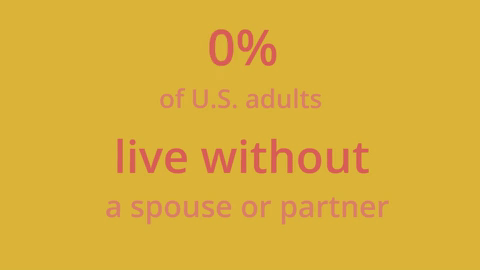by Katie Moritz, October 17, 2017
Source: https://www.rewire.org/marriage/
It’s true: less of us are getting married than ever before. And while it may be too soon to know how millennial divorce rates will trend, divorce is increasing for folks 40 and over.
But, according to a relationship researcher and expert, the married couples who are doing it right are really nailing it. While the average marriage is weaker than it has been in the past, the most fulfilling marriages today are better than ever before, writes Eli Finkel, a Northwestern University psychology professor, in his new book, “The All-or-Nothing Marriage: How the Best Marriages Work.”
For better and for worse

Over the course of a year, Finkel delved into scholarly literature on marriage—work by psychologists, sociologists, economists and historians, he wrote in a New York Times opinion piece on the same topic back in 2014 (it’s a really fascinating read). People who mourn the demise of the institution of marriage are right: the average marriage today is less satisfying and more impacted by divorce, he found.
But today’s best marriages are better than the best ones of marriage’s glory days—today’s happiest couples are more satisfied, both as a pair and as individuals.
That’s probably because of a cultural shift toward more respect and autonomy for women that began in the 1960s, a direct result of the prevailing counterculture movement, Finkel wrote. People started seeing marriage as less of a mandatory thing to check off of a master to-do list and more of a means of self-improvement and self-actualization.
The way the relationship made the two people feel—rather than economic and social necessity—started to become more central, raising the standard for what it means to be in a committed relationship. That means happier couples are happier, but unhappy couples are getting divorced.
Finkel and his team found that while the most proactive couples are able to push their relationships to new heights, the average couple is investing less time into their relationship than in the past.
“Our central claim is that Americans today have elevated their expectations of marriage and can in fact achieve an unprecedentedly high level of marital quality—but only if they are able to invest a great deal of time and energy in their partnership,” Finkel wrote for The New York Times.
High expectations
One of Finkel’s most interesting observations is the changing way we see our spouses. While we’re less dependent on marriage for survival, we expect our partners to fill many more roles than married folks did in the past.
Husbands and wives now more than ever rely on each other to be best friends, confidants, fulfilling sex partners and co-parents, Finkel wrote in his new book. The standard husband and wife roles you see playing out in old sitcoms have mostly gone out the window.

Nobody wants to have an underwhelming marriage. Our lives are busier than ever, and it’s easier to kick the relationship can down the road to focus on pressing work and life things. But if you’re in a long-term relationship with someone you love, it’s possible to be really happy—with some work. Or some altered expectations.
“Couples can choose to invest more time and energy in their marriage, perhaps by altering how they use whatever shared leisure time is available,” Finkel wrote for The New York Times. “But if couples lack the time and energy, they might consider adjusting their expectations, perhaps by focusing on cultivating an affectionate bond without trying to facilitate each other’s self-actualization.”

Katie Moritz was Rewire’s senior editor from 2016-2020. She is a Pisces who enjoys thrift stores and pho. Follow her on Twitter @katecmoritz.








